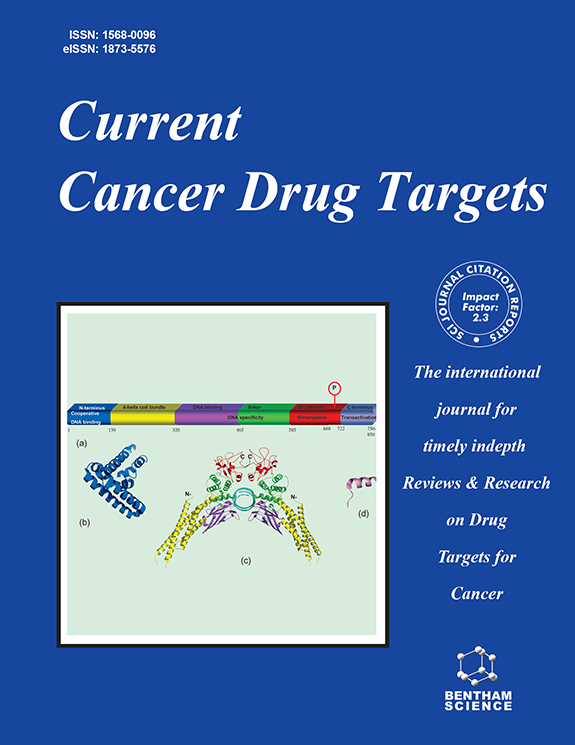
Current Cancer Drug Targets
Indexed in: Scopus, SCI Expanded, MEDLINE/PubMed
View AllCurrent Cancer Drug Targets publishes original research articles, letters/commentary/perspectives, reviews / mini-reviews, drug clinical trial studies and guest edited thematic issues written by leaders in the field covering a range of current topics on drug targets involved in cancer.
As the discovery, identification, characterization and validation of novel drug targets for human anticancer drug discovery continues to grow, this journal has become essential reading for all biomedical and pharmaceutical scientists involved in drug discovery and development. Its scope covers publications related to prevention, diagnosis and treatment of all types of human cancers in various of basic and translational researches, including cancer etiology, signal transduction, biomarker, chemotherapy, hormone therapy, gene therapy, immunotherapy, radiotherapy, immunotherapy and combination therapy, stem cell, tumor environment, metabolism emphasizing on advanced mechanistic investigations.
Editor-in-Chief:
-
Ruiwen Zhang Center for Drug Discovery
University of Houston
Houston, TX
United States of America
ISSN: 1568-0096 (Print)
eISSN: 1873-5576 (Online)



